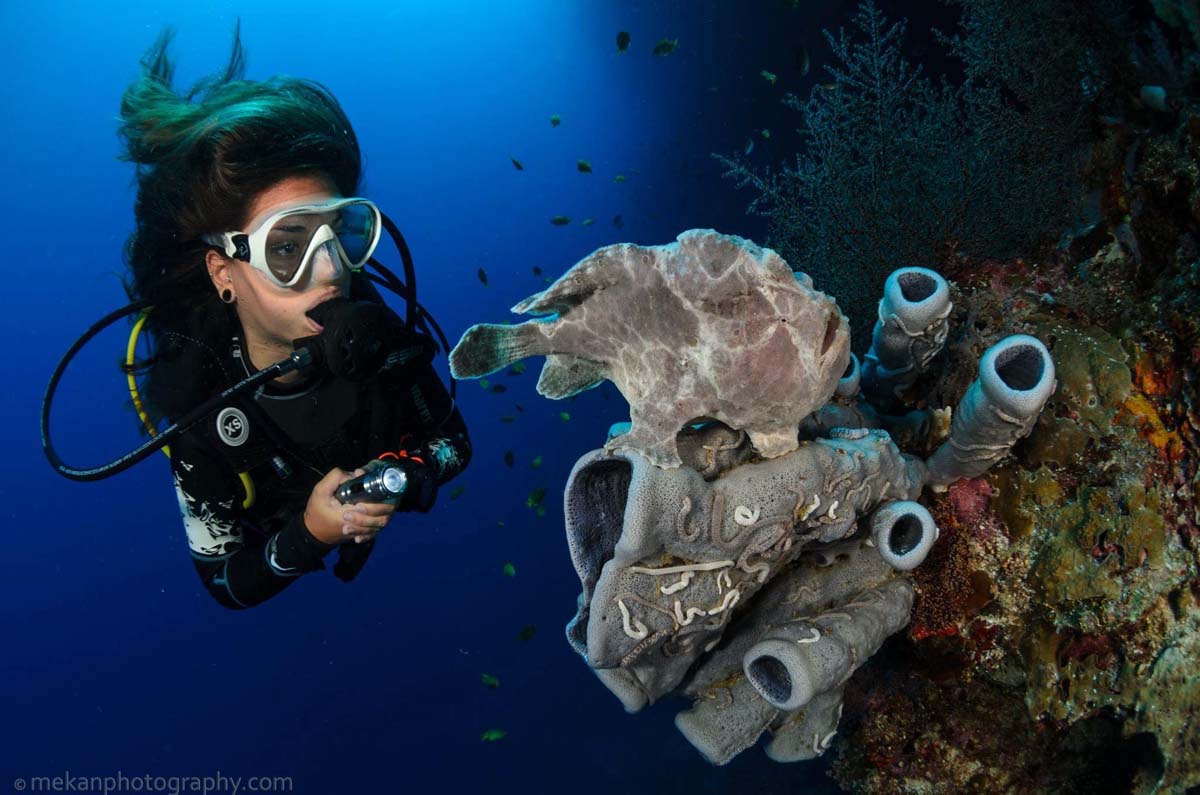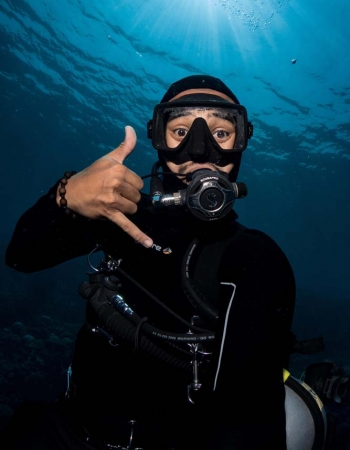Scuba diving used to be considered an ‘extreme sport’ but not anymore. It’s now considered a popular activity that is most-commonly enjoyed on vacation, by anyone from 10 years old and with no upper age limit. More and more children are learning to dive, and now it’s possible for a 10 year old be a certified Open Water Scuba Diver. Many of our guests are in their 60s and some are over 70 years old. It’s a safe activity, but there are always risks of ‘incidents.’ These ‘incidents’ can be anything from slipping over on a wet boat floor to Decompression Sickness (DCS), scuba diving’s most common serious diving injury. There are several reasons why it’s so important to have scuba diving insurance coverage. These include its excellent value, the cost of being transferred back to the mainland for treatment, and in the case of some injuries, the huge cost of the treatment. Now, many of our operators and the national parks in which the boats go diving insist that every diver has adequate insurance cover before departure.

The cost of scuba diving insurance
Buying Scuba diving insurance is cheap & easy. Some divers choose to have annual cover, and they buy their policies online from companies such as DAN (Divers Alert Network), InDepths, DiveAssure or others. Having an on-going policy means that you don’t need to worry about it and you can join any dive at any time with peace of mind. The price of the policy varies from one company to the next, and on the level of cover, age of the diver, and several other factors. Most of our guests do not have annual policies, and they buy short-term cover just for their trip. This can be for just one day, a few days, or a whole week. The cost is as little as $6.50! The average cost is nearer to $10 per day, but this is still incredibly-good value, and for many people, it’s less than they would spend on beer or soft drinks onboard or paying a tip to the dive team.
Emergency Evacuation from the Boat is very expensive!
If something happens to you on the dive trip, you might need to be taken back to the mainland for treatment. Even if it was fair for others on board to cancel their trip and sail back with you, in most cases the large diving boat is slow. Normally it’s necessary to charter a speedboat to come to collect you. And anyway, it wouldn’t be fair for other guests on the boat to end their trip early to enable the injured person to return to the mainland on the diving boat. And if this did happen, they would need to be compensated. Therefore, it’s great to know that your scuba diving insurance policy covers the cost of emergency evacuation from the diving boat back to the mainland, and then by road to the nearest suitable hospital. In fact, some speedboat operators insist on checking that the injured diver has insurance cover before they start their boats to come to retrieve and evacuate them. Speedboats are very expensive to run, mainly due to the cost of fuel that they guzzle with multiple high-power outboard engines.
Treating some diving injuries is very expensive
DCS is the most-common serious diving injury, but other potential injuries include barotrauma, lung over expansion, pulmonary embolism, vascular air/gas embolism, oxygen toxicity, Nitrogen narcosis, and even drowning. That’s a long & scary list, but please don’t start worrying that scuba diving is dangerous. It’s very safe if done properly, using good equipment, a calibrated diving computer, and the Buddy System. But treatment for some of these serious conditions is very expensive. Most treatments for DCS and some embolisms require multi-hour sessions in a hyperbaric recompression chamber. Not only are these devices incredibly expensive to buy and maintain, each patient needs to be accompanied inside by a medically-trained member of the team. $5,000 is a typical cost of treatment in ‘The Chamber’ but it can be more. For just a few dollars per day, you can get insurance policies that will cover this expense. It really is a no-brainer.

Do I have to have diving insurance?
(Insurance is Mandatory in Most Cases)
Most national marine parks and scuba diving centres insist that every diving guest has adequate insurance cover. Sometimes the dive centres make it mandatory because their boats sail into the parks that make the rules, but many dive centres choose to make it mandatory anyway. They don’t do it to make a profit. They do it to help everyone. The prices are so low that there’s little or no commission for selling it. From the local authorities’ and dive operators’ perspective, having every diver covered with insurance adds to peace of mind. But more importantly, it means that if there is an incident, they can initiate the procedures to evacuate that diver immediately. They don’t need to wait for verification of documents or a financial guarantee or transaction. Wasted time could be fatal.
But I have Holiday and/or Credit Card Insurance
 Many people who pay for their vacation with a credit card get limited insurance as a perk of using the card. Also, some people pay a little extra to have their vacation insured. However, it’s very important to check the details of these policies because they normally do not include the expensive treatment, even if they cover evacuation and some limited medical treatment.
Many people who pay for their vacation with a credit card get limited insurance as a perk of using the card. Also, some people pay a little extra to have their vacation insured. However, it’s very important to check the details of these policies because they normally do not include the expensive treatment, even if they cover evacuation and some limited medical treatment.
In summary, it’s a really good idea to have proper scuba diving insurance, and many trips nowadays require you to have it and to show proof before joining the trip. And it’s really good value, with rates starting at $6.50 per day if you buy very short-term policies, and this drops to just over $3/day for week-long policies on some boats. The daily rate is even less if you buy year-long cover, but it depends on how often or regularly you plan to dive in that year as to which is best value ‘per dive.’ And if you have the insurance, you can relax and enjoy your scuba diving in the knowledge that if you are unlucky enough to suffer an incident, you’re covered financially. And it’s not just for normally-avoidable situations like DCS. Don’t forget that anything can happen at any time. Get yourself covered, and enjoy your dives!




